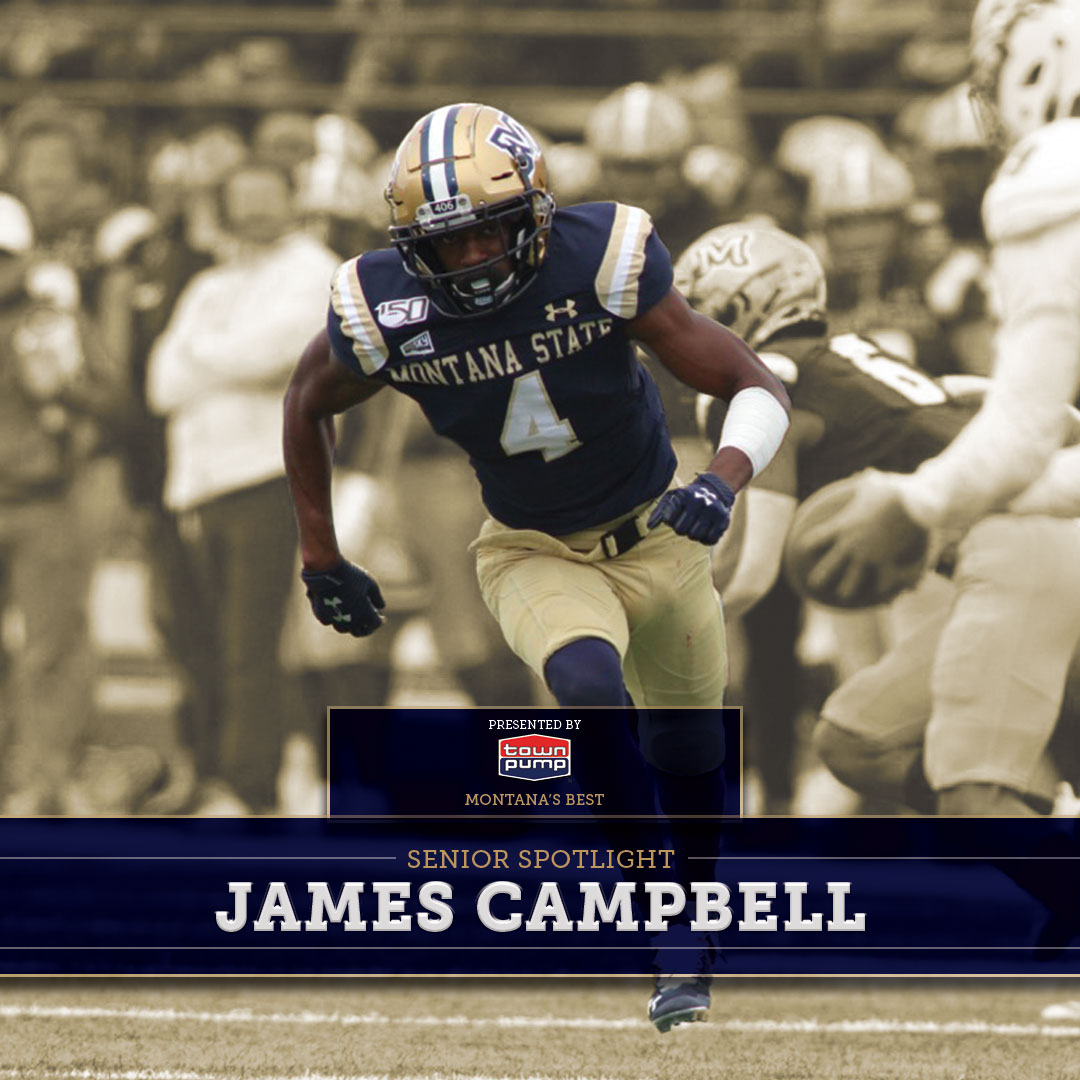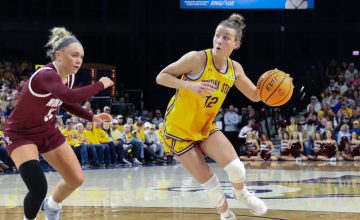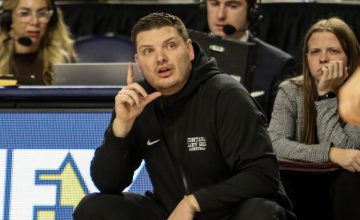Circumstances have hardly been smooth since James Campbell first decided to embark on the adventure of a lifetime five years ago.
Moving to the heart of the Rocky Mountains from the land of the Seminole Indians is a challenging transition. Campbell went from living 16 feet above sea level to almost a mile high in the Gallatin Valley. It goes without saying that the long winters, constant snow, and morning football practices in the sub-freezing (and sometimes sub-zero) temperatures gave Campbell trials as he aged from a teenager into a young man.
“My first time in Bozeman, it was eight degrees,” Campbell remembered with a laugh. “I didn’t even know what to think.”
But that’s only part of this challenging transition Campbell has had to navigate. Campbell’s first fall on the Montana State campus, he played wide receiver after signing with MSU as an athlete who had primarily played option quarterback at Palatka High in Palatka, Florida, some 2,389 driving miles from Bozeman.
Over the last five years, he’s played for an array of different coaches on both sides of the ball, all while navigating living a world away from the tiny Sunshine State town he grew up in. And Campbell has never wavered, leading to a breakout moment for him last weekend on national TV against UC Davis.
“He’s never done anything but work hard and persevere and challenge himself to do what’s best for the team,” Montana State head coach Brent Vigen said. “That’s what college football is supposed to be about.”
Campbell’s position coach when he came in at wide receiver was Matt Miller and the offensive coordinator was Brian Armstrong. After redshirting in 2017, Campbell had to adjust to new wide receivers coach Erik Frazier. Armstrong, who had originally recruited Campbell to MSU, had moved back to the offensive line and fellow play-caller Bob Cole had been fired before the 2018 season, his only campaign at MSU, was even finished.
Miller was elevated to offensive coordinator following Cole’s dismissal midway through 2018 and was trying to operate an offense with converted linebacker Troy Andersen willing the Bobcats to the playoffs as a spread Wing-T quarterback with limited throwing abilities at best.
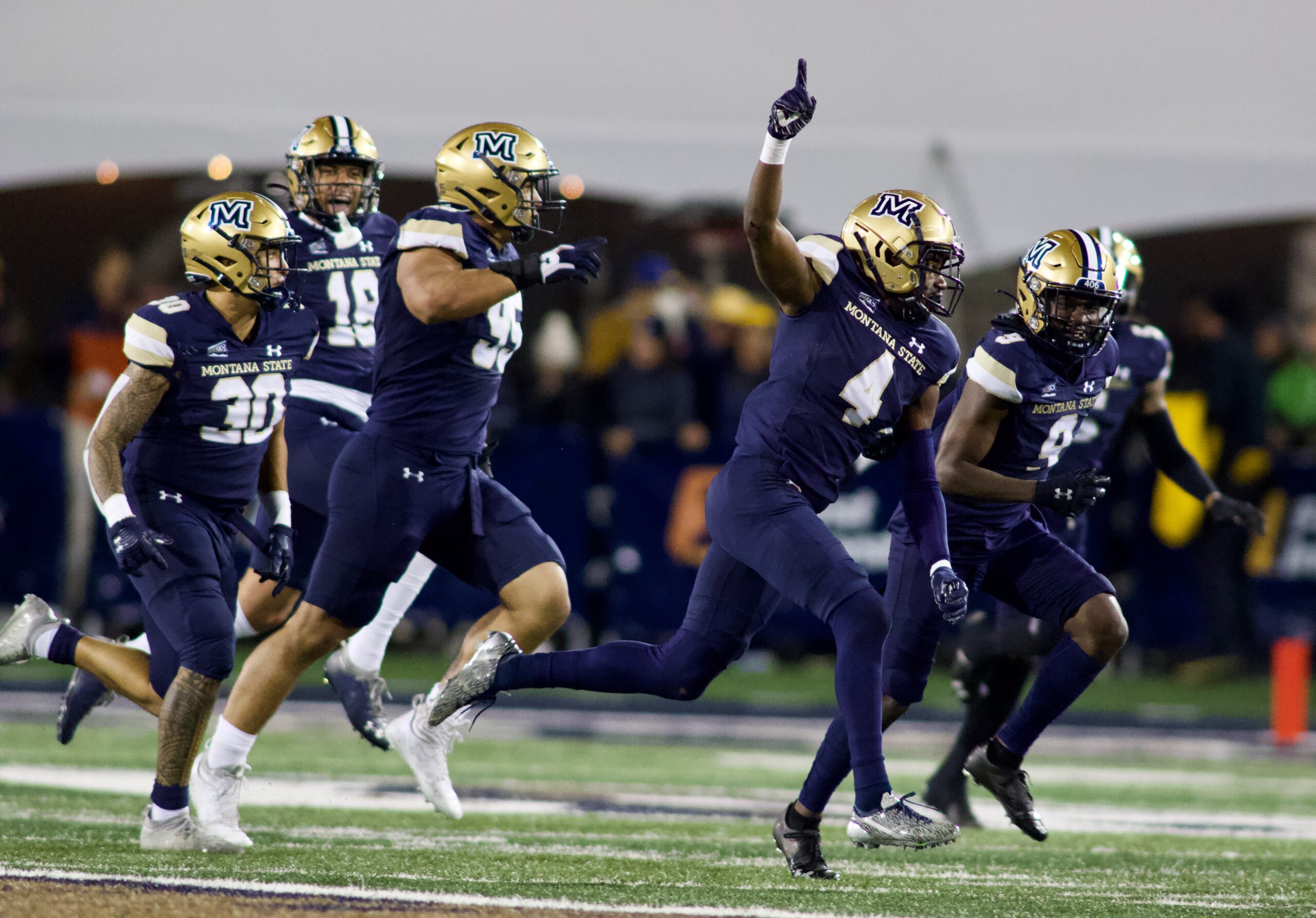
Campbell again played wide receiver under Frazier and Miller in 2019 but found himself buried on the depth chart. Travis Jonsen and Kevin Kassis were the headliners, with each eventually earning shots to play in the NFL. Lance McCutcheon, who’s now with the Los Angeles Rams, and Willie Patterson, who is a senior this season and one of MSU’s top options in the passing game, also clogged the depth chart.
So Campbell figured out a way to get on the field in other ways. During the first half of the 2018 season, Campbell started emerging as a special teams ace. He rolled up six tackles on kickoffs alone, the most on the Bobcats at the time he suffered a season-ending injury.
The following season, he recovered a fumble on a special teams blunder by Northern Arizona while also notching six more tackles on kick teams.
From early on covering kicks, it was apparent that Campbell was not scared of contact. Instead, he seemed to relish it. He did not look like a high school quarterback while bringing the wood, screaming down the field with his superb speed and nose for the football.
Coming out of the 2019 season — a year in which the Bobcats made their first run to the semifinals of the FCS national playoffs since 1984 — Kyle Risinger and Kane Ioane wanted to revisit a thought they’d had a few years earlier when Campbell first arrived on campus.
Risinger, who coached Montana State’s secondary in capacity for five seasons, remembers when the staff was trying to “simply upgrade our speed and athleticism on our roster any way we could” going into the first recruiting season under former head coach Jeff Choate in the off-season following the 2016 season. Armstrong had been a high school coach in Florida and that gave MSU an inroad in the Sunshine State.
Risinger remembers sitting in an all-staff meeting and Choate asking former offensive coordinator Courtney Messingham if Campbell could play wide receiver. Messingham said absolutely. Choate then asked Risinger and former secondary coach Gerald Alexander if they could see Campbell playing corner at Montana State.
“We said, ‘absolutely, we could take him at corner right now,’” Risinger said. “But we needed more help on the offensive side of the ball at that time. When we were recruiting him, both the offense and the defense wanted him and that’s what made him so appealing in the recruiting process.”
By 2020, Campbell was playing corner. By last season, he was starting at cornerback. And last weekend in Montana State’s 41-24 win over UC Davis, Campbell snared his first career interception.
“It was a shock and I was so happy because we really needed that,” Campbell said after the Davis win. “My bro back home said to speak it into existence. So we did.
“It was a big moment for me. I was very excited.”

When Choate first took over at Montana State, it was hard to pin what exactly had gone awry with a Bobcat program that had won three straight Big Sky championships just four years before Choate’s arrival. Degraded culture and apparent apathy aside, the new coaching staff knew upon evaluating the roster ahead of the 2016 season that a stark improvement in athleticism and speed was necessary.
Armstrong had been a high school coach in Florida, serving as the head coach at Lake Gibson High in 2001 and 2002 before spending 2005 and 2006 as the head coach at Kathleen High. He’s helped recruit a few Sunshine State natives to Bozeman.
The first full recruiting class Montana State signed under Choate included Campbell and speedy running back Tyrell Burgess from Florida.
Campbell was a triple option style quarterback during his high school career with what Skyline Sports wrote was “a smooth, gliding running style, a raw throwing motion and a strong arm,” all of which helped him receive recruiting interest from Georgia Tech, Air Force, Navy, Georgia Southern and Wofford. Each of those schools ran the triple option at that point. Campbell threw for 1,275 yards and ran for 620 more his senior year.
Campbell was a first-team all-state selection as a senior and a three-year honors student who had designs on pursuing engineering (although he switched to business management and earned his degree last December). Those leads, plus Armstrong’s connections, gave Montana State an inside track.
“Honestly, I didn’t know anything about Montana,” Campbell said. “I had just finished a game when Army called me and I remembered Montana State so I looked it up on a map. I thought, ‘wow, that’s pretty far. And I knew it snowed. My official visit was my first time seeing snow and the mountains.’
“I was a little nervous like a normal human would be being so far away from home in an environment I didn’t know. It was cold on my visit. It got down to eight degrees. But I just loved the coaches and the school.”
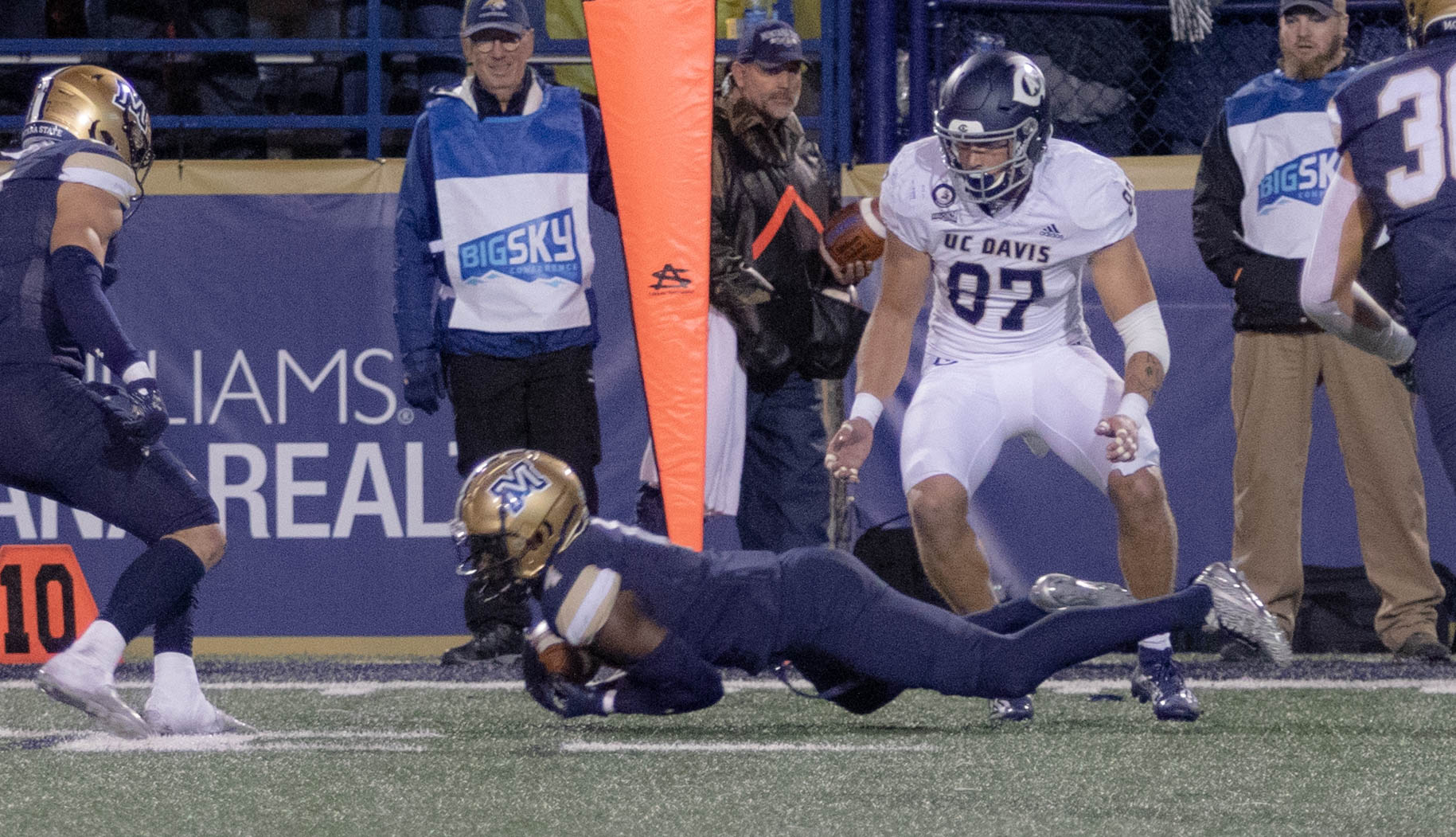
Choate said he liked Campbell’s athletic upside coming out of high school. He also liked that Campbell had primarily focused on baseball until his junior year of high school.
“James had offers from a number of different schools in the Southeast, but he fell in love with the environment here and wants to do engineering. He is a very explosive athlete and can be a difference-maker for us,” Choate said on National Signing Day in February of 2017. “One of the things we focused on in this class is speed at the skill positions. He was a high school quarterback so he shows leadership, productivity, but I think we’re going to start him out at wide receiver although he could play a number of positions.”
That prediction has played out while Campbell has also navigated numerous adjustments. He endured yet another new position coach when Risinger resigned last spring and defensive coordinator Freddie Banks took the same position at Colorado State.
Campbell has played two positions for two head coaches while learning under two offensive coordinators, two defensive coordinators, three special teams coordinators and six different position coaches.
“I’ve always believed in God, that he will take me where he wants to and I trust in him,” Campbell said in September.
“But I also trust the process, knowing in the long run that everything will play out the way I hope.”
More often than not between 2017 and 2019, Campbell was hurt in some form or fashion. While trying to make his way at wide receiver, he also had an uphill battle with three receivers (Jonsen, Kassis, McCutcheon) who would get shots in the NFL established in front of him.
“We didn’t feel like we were getting exactly what we needed out of him after the 2019 season and I told Choate again, ‘I’ll take him for spring ball and see what we can do with him because I think he’ll be a great corner,’” Risinger said. “COVID happened, so we had that fall 2020 and he looked great, then spring of 2021 and he looked great. He kept improving. He’s a special athlete.”
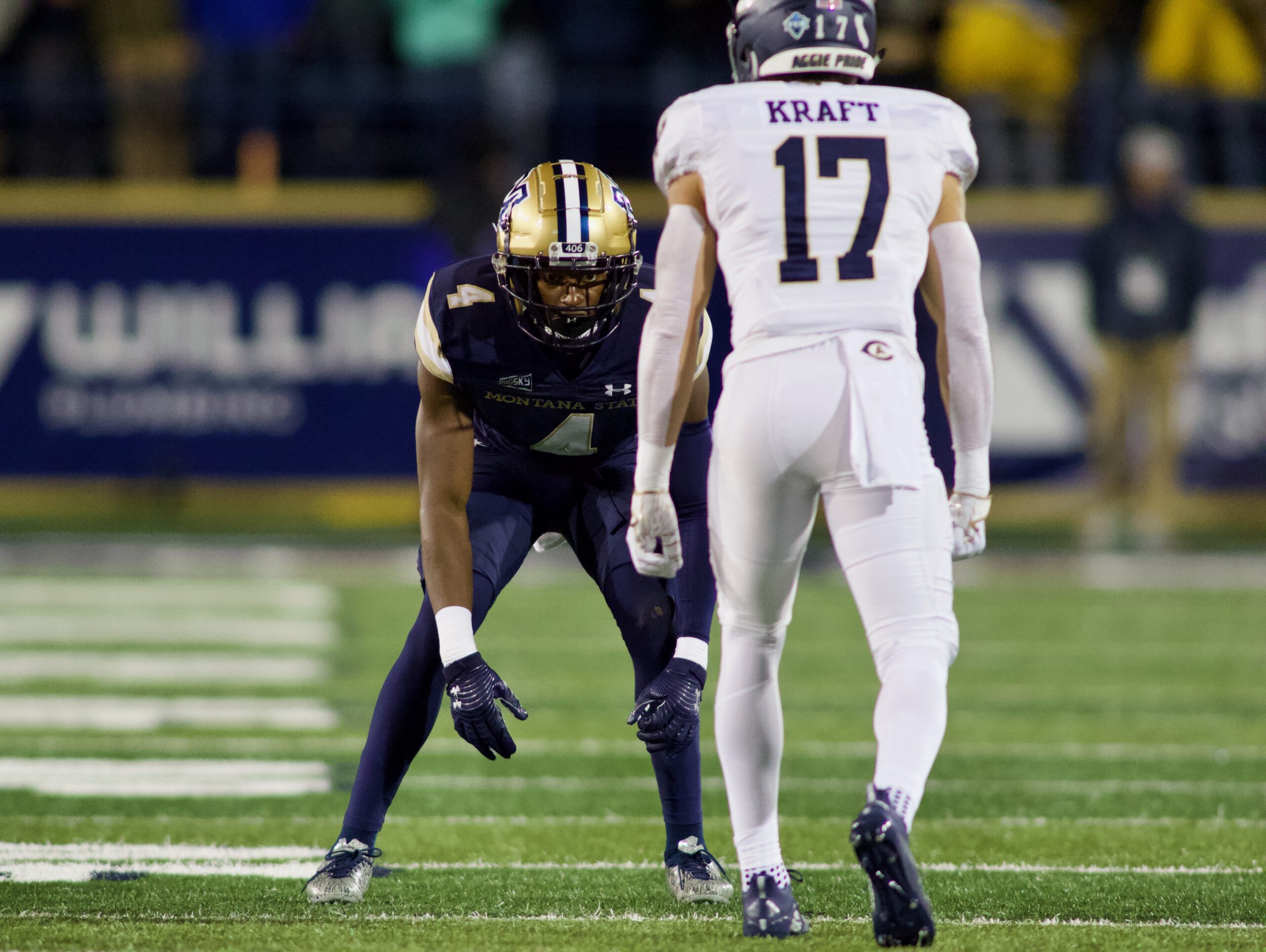
But just how special?
Before last weekend, Campbell’s memorable plays in games could be counted on two hands. He had no statistical outbursts or any of the coveted defensive back statistics (interceptions, pass breakups) on his resume.
But Montana State strength and conditioning Sean Herrin has been thoroughly impressed with Campbell in MSU’s individual testing. His prodigious speed has earned him respect from teammates and coaches alike since he first stepped onto campus
“He is the fastest guy on the team,” Herrin said. “He has 4.4 speed and an even faster mouth.”
Herrin went on to say that Campbell has been clocked at the highest speed of any Bobcat in a game so far this season at 23 miles per hour.
“He’s one of the fastest guys on the team,” MSU captain and fullback RJ Fitzgerald said. “It didn’t work out for him at wide receiver but he got an opportunity to play defensive back and he’s thrived there. He found his home as a football player.
“He’s really aggressive with his play style. He’s a lead by example guy who does everything the right way and one of those guys I love to go to battle for.”
Although Campbell has the natural gifts many corners and perimeter players in general covet — a 6-foot-2 frame, long arms, blazing speed — and even though “the hitting part came pretty easily” because of his time cutting his teeth on special teams, the transition to the defensive secondary wasn’t all cake and ice cream.
Campbell will be the first to admit his footwork wasn’t good when he first stared playing cornerback. But he understood what wide receivers were trying to do because he played the position for three years and because of his lingering quarterback acumen. In an effort to improve his footwork, he started jumping rope.
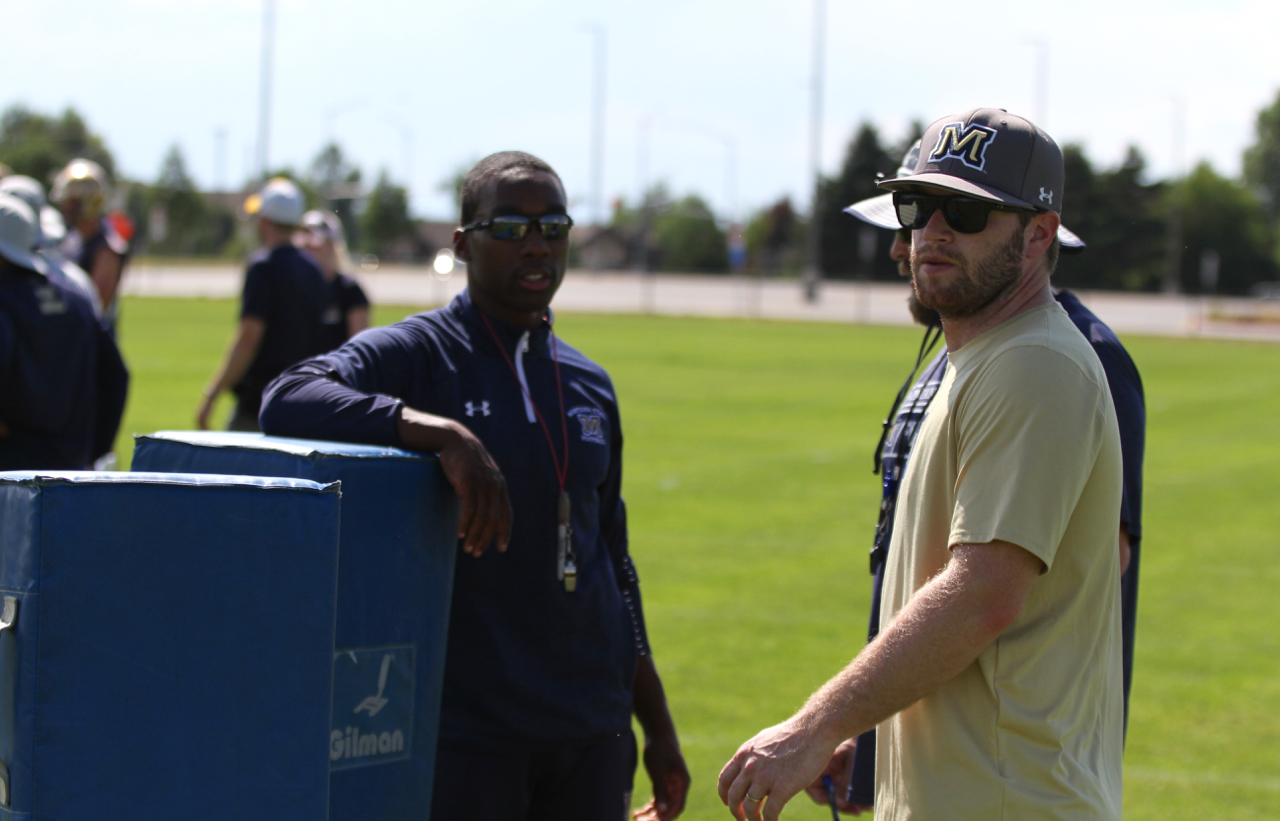
“During COVID, I decided to hone it in and I wouldn’t go a day without jump roping at least 10 minutes a day straight,” Campbell said. “That really made my footwork way better. It was like night and day and really helped me.”
The missed season in 2020 was a bummer for most college football fans, but helped some players rapidly develop without having to risk injuries in games. Campbell worked consistently against MSU’s talented receivers, including McCutcheon, another example of a late bloomer who went from hardly getting targets to setting records at MSU. That set up an opportunity in the NFL, where McCutcheon became the breakout star of the NFL preseason in August.
Battling with McCutcheon gave Campbell even more confidence, although believing in himself has long been a strength.
“He’s got some bite to him and you could ask anyone around the locker room, he’s a guy who loves to joke around, but if you say the wrong thing to him, he can get pretty serious,” said Risinger, who resigned from MSU in the spring of 2022 to pursue a career in business. “He has some bite to him and that was something that was very appealing to the defensive coaches.
“We knew there was a nice clay here if we could mold it correctly. He’s a smart kid, great kid. He has everything you want.”
In an era where transferring is free and easy and long term goals seem to dissipate by the day, Campbell has sacrificed and endured. He has reached the final chapter of his college career as a starter for a national championship contender in a completely different role than he expected when he first signed at MSU.
“This has taught me so much, mainly how to battle adversity and if you don’t like where you are, the only person who can really change it is yourself, so get up and change it,” Campbell said. “Day in and day out, prove to yourself you can be a better man. That’s helped me through injuries and all the changes. This has defined me in a sense. It has shown me what I’m made of, for better and worse. It changed my life.”
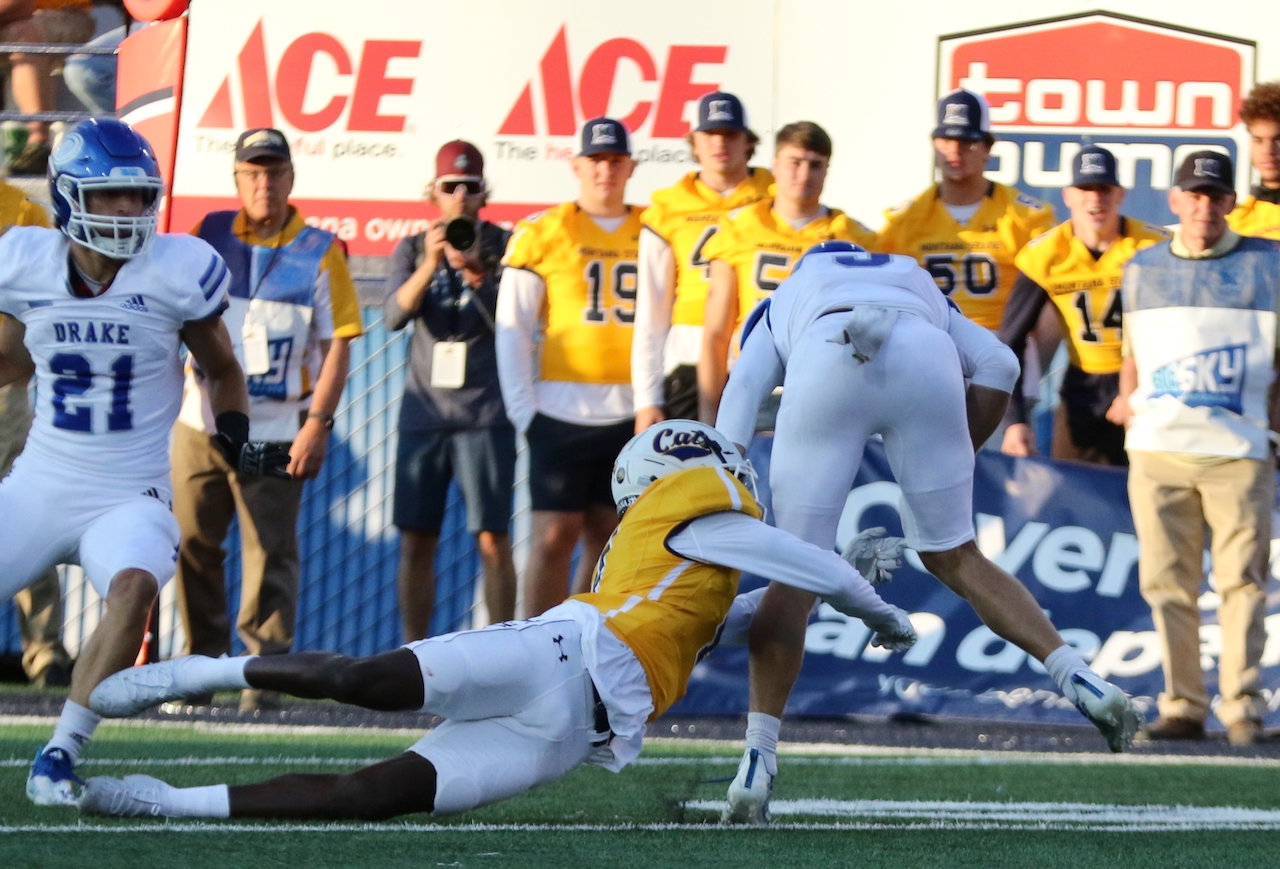
Campbell has already earned his undergraduate degree in business management. He’s earning master’s credits while he finishes his football eligibility. He is uncertain what his future might hold. But if his last five years is any example, his toughness and perseverance will lead him to success once he reroutes his path once again.
“James is a guy who doesn’t want handouts. He’s an old soul like that,” Risinger said. “He’s very much process-driven versus wanting something right away. I just think that screams to his character. He’s going to be super successful in whatever he does.
“Just the fact that a kid from Palatka, Florida, can come up and go through all the issues that were out of his control his entire career, being so far away from home, sticking it out and changing positions, changing coaches, people aren’t built like that anymore.”
“In the short term, you get what you get, in the long term, you get what you deserve. I know that James is a firm believer in that. He’s told me that many times. It’s cool to see him get what he deserves.”
Photos by Brooks Nuanez. All Rights Reserved.

